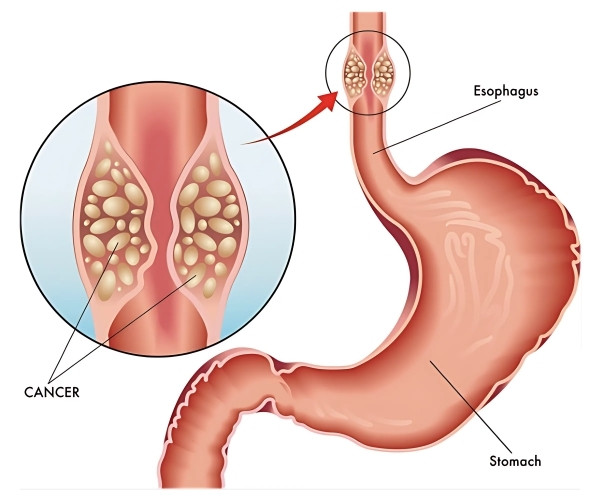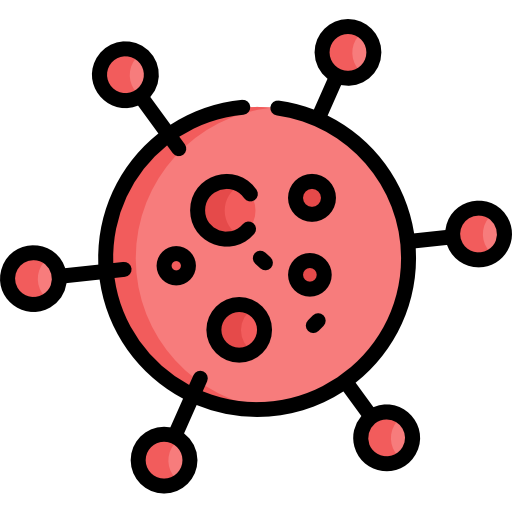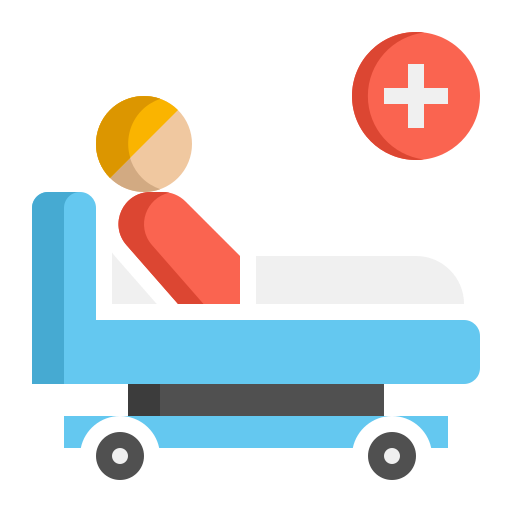Dr. Nitin Singhal
Robotic Esophageal Cancer Surgeon in Ahmedabad, India
About Us
Dr Nitin Singhal: Esophagus Cancer Surgery in Ahmedabad
Dr. Nitin Singhal is a very skilled Robotic and HIPEC Cancer Surgeon who has 15 years of experience of doing major cancer surgeries successfully and has already performed more than 5000 major cancer surgeries. A gastrointestinal, gynecological and urological cancer specialist, he pioneered the management of gastrointestinal, gynecological as well as urological cancers involving advanced robotic surgery and HIPEC. One of his strengths is in the surgery of esophageal cancer, and his precision and minimal invasive practice results in better outcomes and faster recovery.
When it comes to cancer care, you must get a surgeon who is not only excellent in the sophisticated surgeries but also treats the patients with dignity, compassion, and respect. Dr. Nitin Singhal is a leader who combines his skills as a surgeon with an innate understanding of human nature and treats his patients as a member of his family, leading them through the stages of their recovery process. There is more than a doctor you are choosing with him, a good companion who will be on your side until the very end of your battle with cancer.
Happy Clients
Successful Surgeries
Patients Reviews Rate
Years of Experience
What is Esophagus Cancer?
Esophageal cancer is a type of cancer that begins in the esophagus, the long, hollow tube that connects the throat to the stomach and carries food and liquids for digestion. This cancer develops when the cells lining the esophagus grow uncontrollably and form a tumor, which can cause difficulty in swallowing, chest pain, or unintentional weight loss. There are two main types: squamous cell carcinoma, which usually occurs in the upper and middle part of the esophagus, and adenocarcinoma, which is more common in the lower esophagus near the stomach.
It is considered one of the more aggressive cancers of the digestive system, but advances in robotic and minimally invasive surgery, along with chemotherapy and radiation, have improved treatment outcomes. Early detection is vital, as symptoms often appear late. With timely treatment and a comprehensive care approach, many patients can achieve better control over the disease and maintain quality of life.

Types of Esophagus Cancer Surgery

Squamous Cell Carcinoma
This condition is found in the thin, flat cells that cover the upper and middle sections of the esophagus. It is also prevalent among smokers or excessive drinkers.

Adenocarcinoma
This cancer originates in the glandular cells that secrete mucus, which is mostly found in the lower part of the esophagus close to the stomach.

Small Cell Carcinoma
This is a rare and aggressive form of esophageal malignancy that develops rapidly and has an early propensity toward early spread to other organs.

Sarcoma of the Esophagus
Your Guide to Esophagus Cancer
Various things can make one prone to have esophageal cancer. Two of the most powerful contributors are long-term smoking and excessive consumption of alcohol, which in the long-term impairs the lining of the esophagus. The esophagus may also be irritated by chronic acid reflux or GERD and in other situations, this may result in Barretts esophagus, which is a condition whereby cells change abnormally and become precancerous.
Other risk factors are obesity which enhances the reflux; low fruits and vegetables diets; intake of very hot liquids; and family history of cancer. Men, older people and those with some genetic conditions are also at risk. These risk factors are important to understand and manage, in order to prevent them.
Difficulty in swallowing (dysphagia), which may commence with solid food and then liquid food, is the most frequent symptom of esophageal cancer. The patient also might have pain in the chest, a continued sensation of something lodged in the throat or pain in swallowing. The red flags are unexplainable weight loss and fatigue as the disease progresses.
Other symptoms can also include chronic heartburn, chronic coughing, hoarseness and vomiting of blood in serious instances. The unfortunate fact is that the initial stages of esophageal cancer are usually associated with the subtle or absent symptoms, and regular screening is essential in the high-risk patients.
The form of treatment is based on the stage, location and the general health condition of the patient. At an early stage, the surgical procedure can potentially be sufficient to excise the tumor, and robotic-assisted surgery can provide a more accurate result, smaller wounds, less pain, and short-term recovery. In the advanced cases treatment is normally a combination of surgery, chemotherapy, and radiations to reduce or eliminate the cancer cells.
It is also being applied in newer methods like targeted therapy and immunotherapy to selected patients with an intention to target cancer cells more precisely and sparing of healthy tissue. A team comprising of surgeons, oncologists, radiologists and nutritionists collaborate to give individualized care, which guarantees survival and quality of life.
Why Choose Dr Nitin Singhal For Esophagus Cancer Surgery?
Dr. Nitin Singhal is a leading Robotic and HIPEC Cancer Surgeon with 15+ years of experience and 5,000+ successful major surgeries. He specializes in advanced robotic procedures for gastrointestinal, thoracic, gynecological, urological, and esophageal cancers, offering precise, compassionate, and comprehensive cancer care in Ahmedabad.

Expertise
Dr Nitin Singhal is a pioneer in robotic-assisted esophageal cancer surgery, delivering minimally invasive yet precise treatment. He ensures complete tumour removal while preserving vital functions. With expertise in both early and advanced cases, he tailors surgical care to each patient’s needs.
Infrastructure
Dr. Nitin Singhal operates in state-of-the-art hospitals with advanced robotic platforms, imaging systems, and modern ICUs. These facilities ensure precision, safety, and faster recovery. Backed by a multidisciplinary team, patients receive seamless and comprehensive care under one roof.
Technology
Using the da Vinci Surgical System, Dr Nitin Singhal performs esophageal cancer surgeries with 3D vision, precision, and superior control. His minimally invasive methods reduce scarring, pain, and recovery time. He also focuses on preserving swallowing function and overall quality of life.
Benefits of Esophagus Cancer Surgery?

Faster Recovery Time

Low Risk of Infection

Lesser Scars

Less Discomfort After Surgery

Shorter Hospital Stay

Speedier Return to Daily Life
Commonly Asked Questions
What is the operation to remove esophagus cancer?
The standard surgery for esophagus cancer is called an esophagectomy. In this procedure, the diseased portion of the esophagus is surgically removed. The surgeon then reconnects the remaining esophagus to the stomach or, in some cases, to the intestine. This allows food to pass normally after surgery. Modern robotic techniques make the procedure safer and more precise.
How serious is esophageal cancer surgery?
Esophageal cancer surgery is considered a major and complex procedure. It involves operating on both the chest and abdomen, which requires advanced surgical expertise. Risks include bleeding, infection, breathing issues, or leakage at the surgical connection. However, robotic and minimally invasive approaches have significantly reduced these risks. With the right surgeon and setup, outcomes and recovery are much better today.
What is the most common complication after esophagectomy?
The most common complication after an esophagectomy is an anastomotic leak, which happens when the connection between the esophagus and stomach doesn’t heal properly. This can lead to infection and requires careful monitoring. Other complications include pneumonia, swallowing difficulty, or reflux. These risks are reduced in centers with advanced infrastructure and experienced surgeons. Early detection and supportive care ensure smoother recovery.
How long is recovery after esophagus surgery?
Recovery after esophageal cancer surgery usually takes 6–8 weeks for initial healing. However, complete recovery may take several months as the body adapts to changes in digestion and swallowing. Patients may need smaller, more frequent meals and lifestyle adjustments. Physical activity is gradually reintroduced under medical guidance. Rehabilitation and follow-up care are vital for long-term recovery.
Which treatment is best for esophagus cancer?
The best treatment depends on the stage and spread of cancer. Early stages may be managed with surgery alone, while advanced stages often require a combination of surgery, chemotherapy, and radiation. Robotic surgery offers higher precision, less pain, and faster recovery in suitable cases. Targeted therapies and immunotherapy are also emerging options. A personalised treatment plan ensures the best outcome for each patient.
Get In Touch!
We provide a 24*7 emergency care
If you have any kind of robotic cancer surgery-related medical emergency, visit Sterling Hospital. An expert doctor is always available & treatment will be provided at once.

